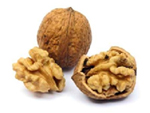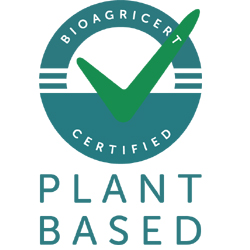Food Intollerances
Most people can eat a wide variety of foods without any problems. For a small percentage of individuals, however, certain foods or food components may cause adverse reactions, from a slight rash to a severe allergic response.
Negative reactions to food can be caused by food allergy or food intolerance.
What is the difference between allergies and food intolerances? The negative reaction to food is often wrongly defined food allergy. In many cases it is caused by other causes such as microbial type of food poisoning, psychological aversion to food or intolerance to a particular ingredient in a food.
The negative reaction to food is often wrongly defined food allergy. In many cases it is caused by other causes such as microbial type of food poisoning, psychological aversion to food or intolerance to a particular ingredient in a food.
Food allergy is a specific form of intolerance to food or food components that activates the immune system.
An allergen ( a protein at risk present into that food, that for the majority of people is
completely harmless) triggers a chain reaction on the immune system including the production of antibodies.
Food intolerance involves metabolism but not the immune system. A typical example is lactose intolerance: people who are affected have a deficiency of lactase, the digestive enzyme that breaks down the milk sugar.
ALLERGIES Usually, the immune system protects the body from harmful foreign proteins unleashing a reaction to eliminate them. Allergy is essentially "an immune alteration" in which a normally harmless substance is "perceived" as a threat - an allergen - and attacked by the immune defenses.
Usually, the immune system protects the body from harmful foreign proteins unleashing a reaction to eliminate them. Allergy is essentially "an immune alteration" in which a normally harmless substance is "perceived" as a threat - an allergen - and attacked by the immune defenses.
Symptoms of reactions to food allergies
Respirators
Runny nose or nasal congestion - Sneezing - Asthma (breathing difficulty) - Cough - Shortness of breath, wheezing.
Skin
Swelling of lips, mouth, tongue, face and / or throat - Hives- Rash or redness - Itch - Eczema.
Gastrointestinal
Abdominal cramps - Diarrhea - Nausea - Vomit - Colic - Swelling.
Systemic
Anaphylactic shock (severe generalized shock)
What is the incidence of food allergies? The true incidence is indicated only by a few studies, with confirmation of the allergic reaction through a double-blind clinical trial (eating alternatively food or a placebo, in a form not recognizable, without which neither the patient nor the doctor know the sequence administration).
The true incidence is indicated only by a few studies, with confirmation of the allergic reaction through a double-blind clinical trial (eating alternatively food or a placebo, in a form not recognizable, without which neither the patient nor the doctor know the sequence administration).
What foods are most commonly cause of food allergies?
Although allergic reactions can occur with any food or food component, in some the chances to cause allergies are higher. Among the most common food allergens there are cow's milk, eggs, soy, wheat, shellfish, fruit, peanuts and nuts.
What does FUGAR for YOU?
Send with every purchase the technical sheets relatives to references where you can find information about the product and the certain or accidental presence of allergens.
FOOD INTOLLERANCES
Intolerance can cause allergy-like symptoms (including nausea, diarrhea and stomach cramps), but the reaction does not involve in the same way the immune system. Food intolerance occurs when the body cannot properly digest a food or food component. While the subjects truly allergic must eliminate in full the offending food, people who have an intolerance can often tolerate small quantity of food or component without developing symptoms. Exceptions are individuals sensitive to gluten and sulfite.
Which are the most common causes of food intolerance?
I The two most common responsible for food intolerance are Lactose and Gluten.
































